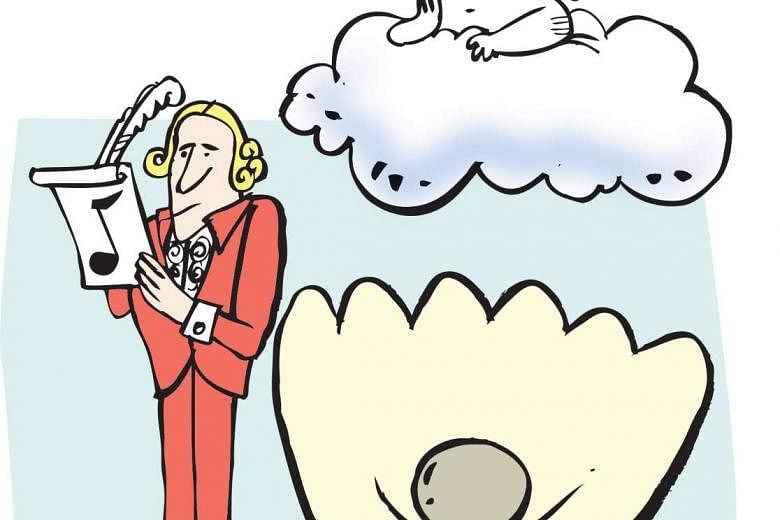I spent some time recently thinking about whether I would prefer to be an oyster.
I was sitting in a concert hall, listening to a performance of a symphony by Austrian composer Joseph Haydn.
As I listened, I thought about how wonderful it must be to play an instrument well, how splendid it must be to conduct an orchestra and how unspeakably magnificent it must be to compose a symphony that people still want to hear hundreds of years after you're dead.
But then again, I thought, how lovely it must be to be an oyster!
CHOOSING A LIFE
This strange idea came into my mind because of a thought-experiment devised by Oxford University philosopher Roger Crisp.
He once wrote: "You are a soul in heaven waiting to be allocated a life on earth.

"It is late Friday afternoon, and you watch anxiously as the supply of available lives dwindles.
"When your turn comes, the angel in charge offers you a choice between two lives - that of the composer Joseph Haydn and that of an oyster."?
It is important to note, here, that this particular oyster's life will consist of nothing more or less than a constant sensation of mild sensual pleasure - a bit like relaxing in a warm bath.
It is an intriguing choice.
You can choose to live a full, active and successful human life. Or you can choose to live a mildly pleasant oyster's life.
To make the choice more difficult, the angel tells you that if you choose Haydn's life, it will last just 77 years.
But if you choose the oyster's life, you can have it for as long as you like.
HIGHER AND LOWER PLEASURES
Professor Crisp's story is rather whimsical. But it has a point. It is designed to get us thinking about what makes life worthwhile.
British philosopher Jeremy Bentham (1748-1832) claimed that a happy life is simply one in which pleasure outweighs pain, and that the more pleasure you have, the better your life is.
He also believed that the type of pleasure does not matter, only the amount.
Thus, the pleasure you would get from relaxing in a warm bath is just as valid and important as the pleasure you would get from composing a symphony.
This might sound like a selfish philosophy. Yet, Bentham was a great social reformer who worked tirelessly to try to make the world a better and happier place for everyone.
Another British philosopher, John Stuart Mill (1806-1873), was a great admirer of Bentham, and agreed with much of what he said.
But Mill did not agree that, when it came to pleasure, all that mattered was the amount.
He believed that "higher" pleasures such as friendship, art, poetry and music are better and more important than "lower" pleasures such as eating, drinking and lying in a warm bath.
He said that anyone who had experienced both kinds of pleasures would prefer the higher ones, and would choose them even if the quantity of pleasure they produced was less.
He wrote that few human creatures would consent to be changed into any of the lower animals for a promise of the fullest allowance of a beast's pleasures.
According to him, no intelligent human being would consent to be a fool, no instructed person would be an ignoramus, no person of feeling and conscience would be selfish and base - even though they should be persuaded that the fool, the dunce or the rascal was better satisfied with his lot than they were with theirs.
MAKING A CHOICE
Prof Crisp's fanciful little tale is designed to help us think about whether we are on the side of Bentham or Mill.
If we think that the amount of pleasure in life is all that matters, then we would probably choose the oyster's life, and ask for it to be made very, very long.
That way, we would get to experience a huge amount of mild but prolonged pleasure.
But if we think the type of pleasure is important, then we would choose Haydn's life.
Most people, faced with the choice, plump for the human life.
I would too.
But I cannot help thinking that there is something very appealing about the oyster's life too - which makes me think I should spend more time relaxing in the bathtub.
• Gary Hayden is a philosophy and science writer.

